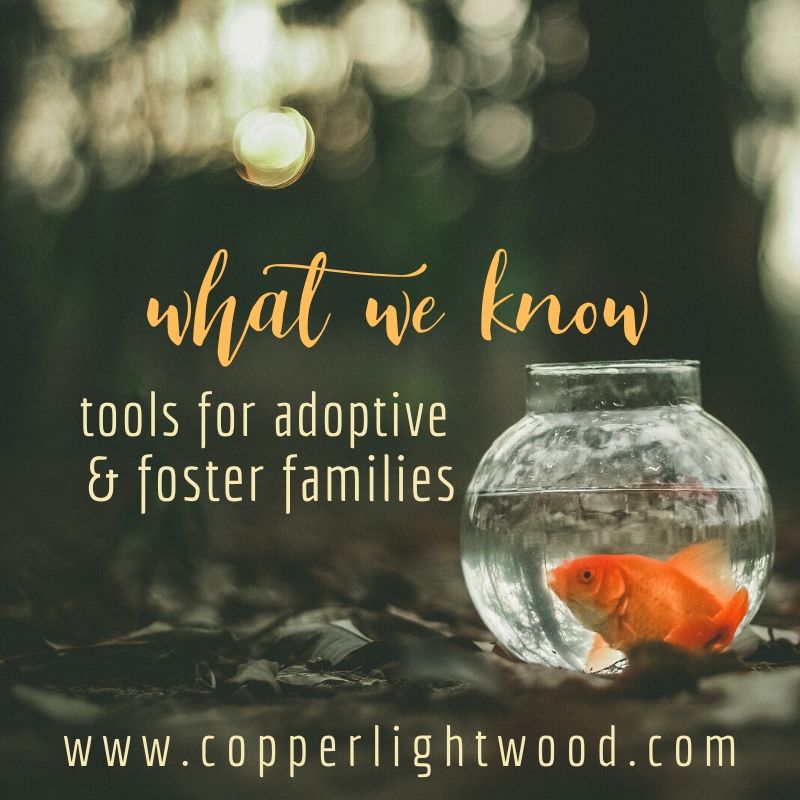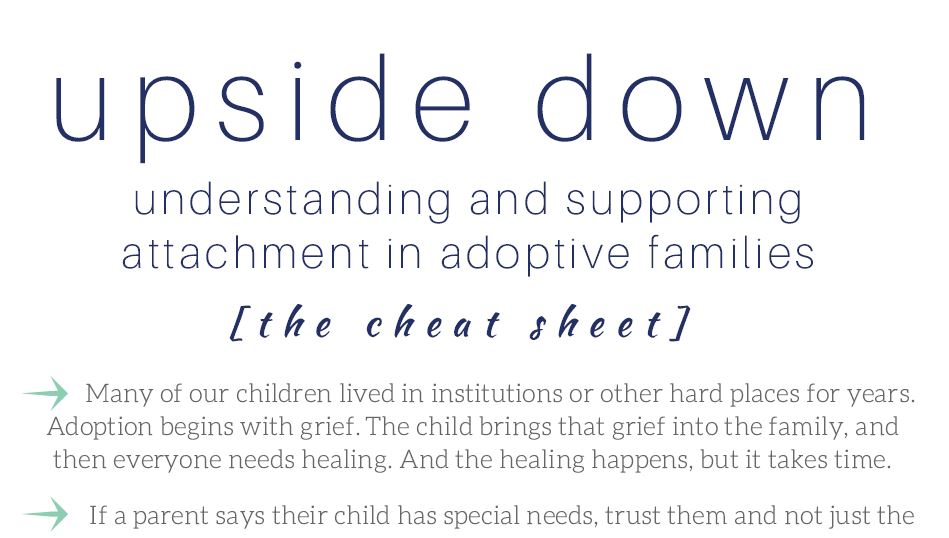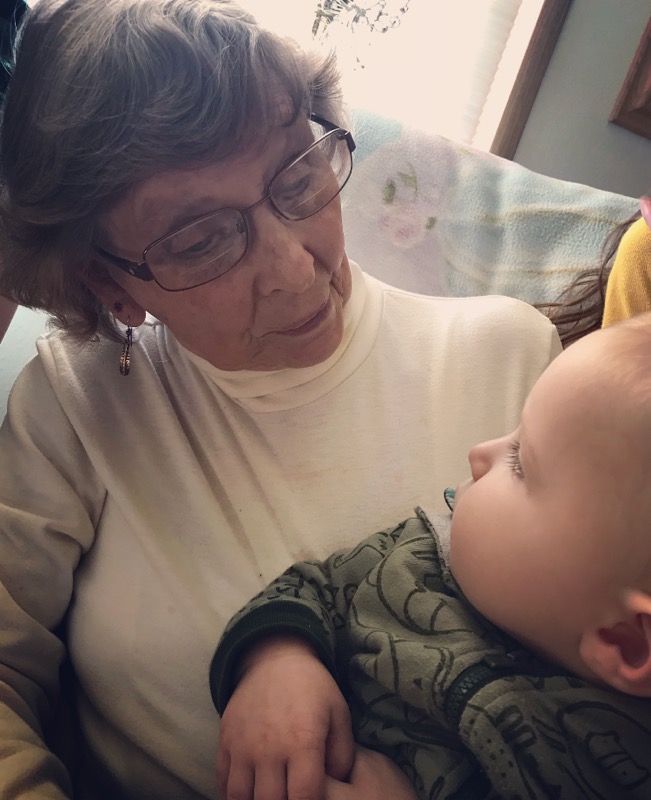Last week I finished reading the New Testament again, and turned back to Matthew. And I might as well confess to you that my first thought was, Oh, goody. Seventeen verses of genealogy. Go ahead and judge me.

I happened to be sipping bone broth at the time, which is almost as much fun as reading Abraham was the father of Isaac…and Isaac the father of Jacob, and a few dozen more generations. But I needed to do it; I’ve dealt with postpartum eczema after our last four or five babies, and my right hand in particular is fairly gruesome. My handwriting is worse than normal, I have a hard time opening things (or turning doorknobs), and some days even typing hurts. It keeps me up at night. But bone broth helps, so…drinks it, we does.
…And Salmon the father of Boaz by Rahab, and Boaz the father of Obed by Ruth, and Obed the father of Jesse…
– Matthew 1:5
The verses also go in and do their own form of healing and restructuring. Like the bone broth, they are nutrient-dense regardless of appeal, going inside and bringing healing in increments. The broth boosts immune systems and digestive systems, and you could sorta say the same thing for reading the Bible, as it builds our spiritual protection and helps us process daily life in the healthiest of ways.
Whether we understand it all or not, whether we know we need healing or not, it goes in and it changes us.
…And Jesse the father of David the king.
And David was the father of Solomon by the wife of Uriah…
– Matthew 1:6, ESV
It takes no time at all to read seventeen verses of genealogy – less time than it takes to drink the mug of bone broth, sigh – and then suddenly I’m right in the middle of the season and confronted with the birth of Jesus, though I didn’t plan it that way at all.
Now the birth of Jesus Christ took place in this way. When his mother Mary had been betrothed to Joseph, before they came together she was found to be with child from the Holy Spirit.
– Matthew 1:18, ESV
Now friends, if you’ve never read the Christmas story – the real one, not the cartoon special, the Hallmark movie, or the VeggieTale – it’s well worth the four minutes of your life it will take to do so. In Matthew it’s from here to here, just eight verses. Luke’s account is more detailed, from here to here, roughly 75 verses.
In those same four minutes, you could mindlessly scroll social media for all the cat memes, store ads, and political spin you can stomach…or you could tuck the original account of the birth of Jesus into your soul and let it do its work. Give it four minutes. The internet will still be there when you’re done, and you’ll begin to see it and everything else with new strength and perspective.

You might not notice the change at first. But like that bone broth, the Word will go in and make you more like the person you were made to be.
And Mary said,
“My soul magnifies the Lord,
and my spirit rejoices in God my Savior,
for he has looked on the humble estate of his servant.
For behold, from now on all generations will call me blessed;
for he who is mighty has done great things for me,
and holy is his name.
And his mercy is for those who fear him
from generation to generation.– Luke 1:46-50, ESV
When we don’t know someone, our mind and thoughts exaggerate them into caricatures. They are all this, or all that; the little we know isn’t enough for a full picture so we fill in the blanks with assumptions. They become the cartoon version of the real thing. Without abiding and being in the Word, we’re in danger of doing the same thing with God, mistaking Him for all sharp lines, zigzags, and exaggerated curves.
But we do the same thing to ourselves, too. Sometimes we take on our pain, or our circumstances, or some other imbalance as our identity, though we were never meant to.

I’ve been talking (and writing) a lot lately on how we act out of our identity:
When we know who we are, we act like it – and this
is why we need to know who (and Who) we’re dealing with. Because when we don’t, we act out in sharp lines, zigzags, and exaggerated curves. And we were never meant to have such inflammation, imbalance, and pain.
Research has shown that once a person believes in a particular aspect of their identity, they are more likely to act in alignment with that belief….
After all, when your behavior and your identity are fully aligned, you are no longer pursuing behavior change. You are simply acting like the type of person you already believe yourself to be.
– James Clear, Atomic Habits (p. 34-35)
When we understand who God is, and who He made us to be, we will act like it. The only way to be comfortable in our own skin is to get to know the One who designed it.
He knows our hearts better than we do. And that means that He knows how we are better than we give ourselves credit for, and also the ways we are worse than we realize.
He knows the things we don’t take credit for, but should.
He also knows the things we don’t take responsibility for, but should.
There are areas in our lives where we are doing better than we think we are – but there are other areas we’re blind to that need correction and alignment. Our minds are constantly renewed through abiding with Him.
God rest you merry, gentlemen,
Let nothing you dismay;
Remember, Christ, our Saviour
Was born on Christmas day
To save us all from Satan’s power
When we were gone astray…
O tidings of comfort and joy.
It’s one of the oldest carols, dating back to at least the 16th century. There’s no known author to credit. And even though we sing it all season long, the title really doesn’t make any sense – unless we understand what the word “rest” means in context.
In the 16th century, this usage of rest meant to keep, cause to continue, to remain. Or, as we say, abide.
And, because punctuation matters (high five to my nerdy friends), note that the comma is after the word “merry” and not before it. Literally, the message is along the lines of “God keep you merry, friends” or “God abides with you for joy, friends.”

And the Word became flesh and dwelt among us, and we have seen his glory, glory as of the only Son from the Father, full of grace and truth.
– John 1:14, ESV
The true story brings down our inflammation and offenses, brings balance to systems and habits that are off kilter. It renews us at a cellular level, giving us strength to reject the things He knows will harm us and the maturity to make healthier choices, for our own comfort and joy.
He will be great and will be called the Son of the Most High. And the Lord God will give to him the throne of his father David,and he will reign over the house of Jacob forever, and of his kingdom there will be no end.
– Luke 1:32-33, ESV
The Word goes in and changes us. It – more accurately, He – makes us more like the way we are supposed to be:
Whole. Free. Comfortable in our own skin. Because our joy is at stake.






